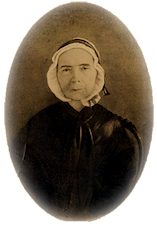July 30th.—I have just been conversing with some young soldiers, who joined in the dangers and glories of the battle-field. They corroborate what I had before heard of the presence of Northern females. I would not mention it before in my diary, because I did not wish to record any thing which I did not know to be true. But when I receive the account from eye-witnesses whose veracity cannot be doubted, I can only say, that I feel mortified that such was the case. They came, not as Florence Nightingales to alleviate human suffering, but to witness and exult over it. With the full assurance of the success of their army they meant to pass over the mutilated limbs and mangled corpses of ours, and to go on their way rejoicing to scenes of festivity in the halls of the vanquished, and to revel over the blood of the slain, the groans of the dying, the wails of the widow and the fatherless. But “Linden saw another sight,” and these very delicate, gentle, womanly ladies, where were they? Flying back to Washington, in confusion and terror, pell-mell, in the wildest excitement. And where were their brave and honourable escorts? Flying, too; not as protectors to their fair friends, but with self-preservation alone in view. All went helter-skelter—coaches, cabriolets, barouches, buggies, flying over the roads, as though all Fairfax were mad.
“Ah, Fear! ah, frantic Fear!
I see—I see thee near.
I know thy hurried step, thy haggard eye!
Like thee, I start; like thee, disordered fly!
Each bush to their disordered imaginations contained a savage Confederate. Cannon seemed thundering in the summer breeze, and in each spark of the lightning-bug, glinted and gleamed the sword and Bowie-knife of the blood-thirsty Southerner. Among the captured articles were ladies’ dresses, jewels, and other gew-gaws, on their way to Richmond to the grand ball promised to them on their safe arrival. There were also fine wines, West India fruits, and almost everything else rich, or sweet, or intoxicating, brought by the gay party, for a right royal pic-nic on the field of blood. The wines and brandies came in well for our wounded that night, and we thank God for the superfluities of the wicked.
July 30.—News from home. Mr. McD., of the Theological Seminary, an Irish student, who was allowed to remain there in peace, being a subject of Great Britain, has just arrived at this house as a candidate for ordination. He says that our house has been taken for a hospital, except two or three rooms which are used as headquarters by an officer. Bishop Johns’ house is used as headquarters; and the whole neighbourhood is one great barracks. The families who remained, Mrs. B., the Misses H., and others, have been sent to Alexandria, and their houses taken. Mr. J’s and Mr. C’s sweet residences have been taken down to the ground to give place to fortifications, which have been thrown up in every direction. Vaucluse, too, the seat of such elegant hospitality, the refined and dearly-loved home of the F. family, has been levelled to the earth, fortifications thrown up across the lawn, the fine old trees felled, and the whole grounds, once so embowered and shut out from public gaze, now laid bare and open—Vaucluse no more! There seems no probability of our getting home, and if we cannot go, what then? What will become of our furniture, and all our comforts, books, pictures, etc.! But these things are too sad to dwell on.
Mr. McD. gives an amusing account of the return of the Northern troops on the night of the 21st, and during the whole of the 22d. Such a wild, alarmed, dispirited set he had never an idea of. He had seen them pass by thousands and thousands, first on one road and then on the other, well armed, well mounted, in every respect splendidly equipped, only a few days before. As a Southern sympathizer, he had trembled for us, and prayed for us, that we might not be entirely destroyed. He and one or two others of similar sentiments had prayed and talked together of our danger. Then what was their surprise to see the hasty, disordered return!
